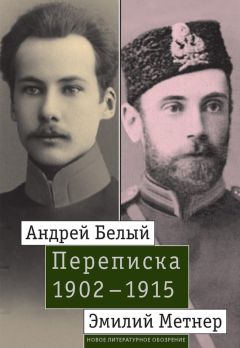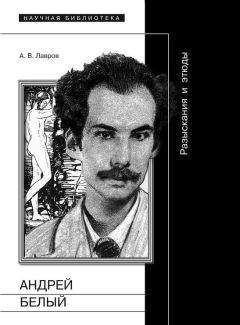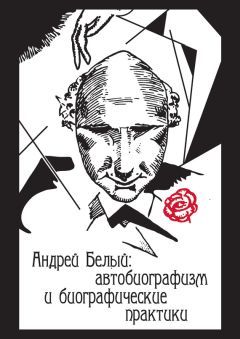Денис Шевчук - Английский язык: самоучитель
1. Answer the questions about yourself.
Напишите ответы на вопросы о себе.
1. What do you usually do at the weekend?
2. Do you always work at weekdays?
3. Which is your favourite day of the week? Why?
4. When do you usually cook your meals?
5. Do you like to go out at the weekend? Where to?
6. What did you do last weekend?
7. What would you like to do next weekend?
8. Is the atmosphere peaceful in your town?
9. Do you prefer staying with your friends or your family at the weekend?
10. Which places are the most attractive in your town?
2. Complete the sentences given.
Дополните предложения.
1. At the weekend my wife prefers ...
2. My children are interested in ...
3. I do sport because ...
4. We often go out to ...
5. At the weekend we never ...
6. We watch television ...
7. Our friends ...
3. Make up questions. Start them with the words given.
Составьте вопросы к данным предложениям, начинающиеся с данных вспомогательных глаголов или вопросительных слов.
4. Find one word in each line that shouldn’t be there. The first has been done for you.
Найдите одно лишнее слово в каждой строчке. Первая строка выполнена как пример.
FOCUS ON VOCABULARY
Активный словарь
1. clothes – одежда (всегда во множ.ч.)
Her clothes are elegant. – Ее одежда элегантна.
She wants to buy some new clothes. – Она хочет купить новую одежду.
2. dish – блюдо
to wash the dishes – мыть посуду
3. baseball – бейсбол
to play baseball – играть в бейсбол
4. activity – деятельность, активность
activities – мероприятия
5. barbecue – пикник с традиционным блюдом из мяса
6. garden – сад, огород
gardener – садовник
7. team – команда
team game – командная игра
8. uniform – форменная одежда, форма
to wear a uniform – носить форму
9. agency – агентство
advertising agency – рекламное агентство
10. interview – интервью
job interview – собеседование при приеме на работу
11. concert – концерт
jazz concert – концерт джазовой музыки
12. wedding – свадьба
wedding party – свадебный вечер
13. event – событие
15. weekdays – рабочие дни
at weekdays – в рабочие дни
16. winter – зима
17. summer – лето
18. autumn (Am. fall) – осень
19. spring – весна
20. game – игра
computer game – компьютерная игра
22. people – люди
23. programme – программа
24. channel – канал
TV channel – телевизионный канал
25. midnight – полночь
at midnight – в полночь
Adjectives1. special – особый, особенный
nothing special – ничего особенного
2. young – молодой
young people – молодежь, молодые люди
3. clean – чистый
4. dirty – грязный
5. serious – серьезный
6. clever – умный
7. friendly – дружелюбный
8. famous – известный
9. happy – счастливый
Verbs1. to miss – пропустить; скучать по
to miss classes – пропустить занятия
2. to clean – чистить, очищать
to clean the room – убирать комнату
3. to wash – мыть
4. to happen – случаться, происходить
It happened yesterday. – Это произошло вчера.
5. to involve – включать в себя
It involves two sets. Она включает два тура.
6. to spend (spent) – проводить (время), трать (деньги)
I spent my holidays there. – Я провел каникулы там.
7. to wear (wore) – носить (одежду)
I never wear jeans. – Я никогда не ношу джинсы.
8. to try – пытаться, стараться
I try to do it very well. – Я стараюсь делать это очень хорошо.
Adverbs1. late – поздно
2. early – рано
3. together – вместе
4. quite – совершенно, совсем
quite a bit – совсем чуть-чуть
5. outside – снаружи, на открытом воздухе
6. seriously – серьезно
Word Combinations1. exercise class – учебный класс
2. go sailing – заниматься плаванием (под парусом), отправиться в плавание (на судне)
3. at least – по крайней мере
4. not at all – не за что
5. to be dressed up – быть нарядно одетым
6. point of view – точка зрения
7. take it seriously – воспринимать что-либо серьезно
8. rather good – достаточно хороший
1. Match the halves of the words.
Соедините половинки слов.
2. Make up the sentences of your own using the following words (three in one sentence).
Составьте предложения, используя данные слова (по три в каждом из предложений).
3. Complete the gaps with a suitable word or phrase from the Word Box.
Вставьте пропущенные слова и фразы.
4. Translate into English.
Переведите на английский язык.
Language focus 1
Adverbs of frequency
Наречия частотности
Для наречий «один раз» и «два раза» существуют особые формы «once» и «twice». Для всех остальных наречий – формы three times, four times, и т. д.
Наречия частотности, употребляемые с грамматическим временем Present Simple (Indefinite):
Often – часто
Seldom – редко
Never – никогда
Usually – обычно
Sometimes – иногда
Always – всегда
В предложении эти слова чаще всего стоят перед смысловым глаголом:
Rita always types letters.
Но всегда после глагола to be:
Rita is always late.
Вопрос «Как часто» задается с использованием «How often»:
– How often do you wash the dishes?
– Three times a day.
– How often does she miss classes?
– She never misses classes.
– How often do they go sailing?
– They go sailing once a month.
5. Give your answers to these questions.
Дайте ответы на следующие вопросы.
6. Write as many sentences as possible.
Напишите как можно больше предложений.
7. Complete the sentences. Use different adverbs of frequency.
Дополните предложения, используя различные наречия частотности.
Language focus 2
Prepositions of time and place (Revision)
Предлоги времени и места (повторение)
Prepositions of time
Prepositions of place
8. Ask questions. Start them with the words given.
Задайте вопросы, начинающиеся с данных слов.
1. I never washed the dishes in the childhood.
Did........................................................................?
2. This event happened on the second of April.
When did.................................................................?
3. I will be famous next year.
Will.......................................................................?
4. I saw them together at the cinema.
Where did...............................................................?
5. He will go to the job interview in an hour.
When will................................................................?
6. On holidays I go to the exercise class.
Who.......................................................................?
7. I can see some young people among them.
Can........................................................................?
8. He has coffee and cakes for breakfast.
What does.................................................................?
9. There are two dirty cars in front of our house.
Are there...................................................................?
10. She is always dressed up at the office.
Why is......................................................................?
9. Answer the questions.
Ответьте на вопросы.
1. Where were you on holidays?
2. What did you have for dinner?
3. What is there next to your computer?
4. What will you cook for tomorrow?
5. Did you sleep well last night?
6. What dreams did you see last night?
7. Will you have guests at tea?
8. Are your children at school?
9. What do you usually do at 10 p.m.?
10. Do you get a lot of presents at Christmas?
11. How many rooms are there in your flat/house?
12. Will you relax in an hour?
13. What sports did you do in winter?
14. What is there opposite your house?
10. Translate the following phrases into English. Make up your own sentences with them.
Переведите на. английский. Составьте предложения с данными фразами.
FOCUS ON GRAMMAR
Активная грамматика
The Simple (Indefinite) Tense
Времена группы Simple (Indefinite)
Настоящее время группы Simple (Present Simple) используется для выражения обычного, повторяющегося действия. Употребляется с такими наречиями времени, как
every day, usually, often, never, always, seldom, sometimes.
Прошедшее время Past Simple используется для выражения действия в прошедшем времени. Употребляется с наречиями: last year/summer/month/week, yesterday, in 1987, three weeks/days/months ago, then.
Будущее время Future Simple используется для выражения действия в будущем. Употребляется со следующими наречиями: next year/month/week, tomorrow, in a month.
1. Choose the right variant.
Выберите правильный вариант.
2. Ask questions. Give negative answers.
Задайте вопросы. Дайте отрицательные ответы.
Example: She washes the dishes every evening. Does she wash the dishes every evening? She doesn’t wash the dishes every evening.
3. Find one mistake in each sentence.
Найдите одну ошибку в каждом предложении.
Language focus 2Types of Questions (revision)
Типы вопросов (повторение)
В английском языке существует 5 основных типов вопросов:
– общие;
– специальные;
– вопросы к подлежащему;
– альтернативные;
– расчлененные.
Общие вопросы начинаются со вспомогательного глагола: do, does, am, are,is, can и т. д. Произносятся они, в основном, с восходящим тоном. На них можно ответить кратко «да» или «нет». Они задаются ко всему предложению целиком.



